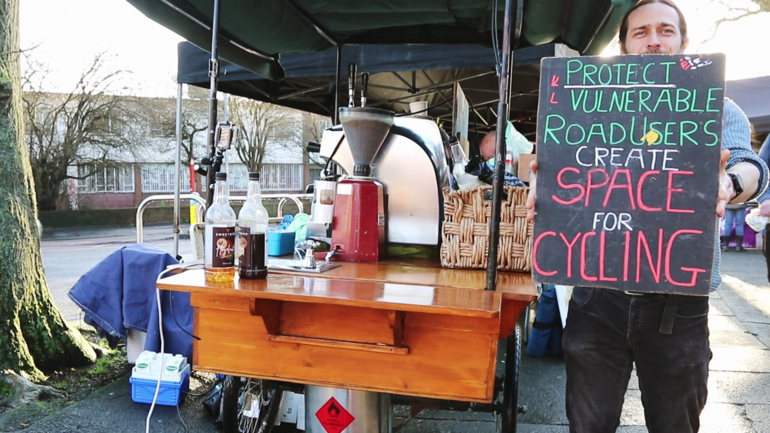Spółdzielnia/Cooperative: Invisible Activism in Manchester
Greifenhagener Straße 32
10437 Berlin
Spółdzielnia/Cooperative: Invisible Activism in Manchester
Greifenhagener Straße 32
10437 Berlin
Film screening and discussion with the film-maker Piotr Goldstein (ZOiS)

Spółdzielnia/Cooperative is a visual ethnography portraying the everyday work of a socially engaged cooperative in Manchester, which is run mainly by Polish migrants. The film is, after Active (citizen), the second ethnographic documentary of the Visualising the Invisible Project, which looks at the activism of migrants and ethnic minorities outside of their community organisations. The film approaches three key academic questions. Firstly, it explores the field of everyday activism (Goldstein 2017) – the type of activism which happens not in NGOs or protest movements, but rather in everyday engagements, including in social businesses where the balance between activism and moneymaking is continuously confronted and negotiated. Secondly, it looks at migrant activism for causes completely detached from migrant-group advocacy or interests. Finally, it portrays a Polish community that exists in parallel to the formal ‘Polish Community’ epitomised by the Polish church, Saturday school, etc. and is in many ways very different from that community. Recorded over five years of participant observation, the film is also a story of placemaking, belonging and affirming social citizenship in a new country.
Participants
- Piotr Goldstein is a social scientist working at the intersection of social anthropology, sociology and political science. At ZOiS, he works in the team of the MOBILISE project, which aims to understand why in times of crisis some people protest while others migrate.
- Moderation: Sebastian Truskolaski (University of Manchester & ZFL Berlin)
Contact
Anja Krüger
Communications Coordinator
events(at)zois-berlin.de
The event is part of the series ZOiS Forum.
The ZOiS Forum brings together academic, artistic, and political perspectives on the issues driving Eastern Europe today. Our aim is to make the significance and variety of our region of research accessible to a broad audience. Readings, discussions, presentations, and film screenings take place once a month during the semester.
READ MORE